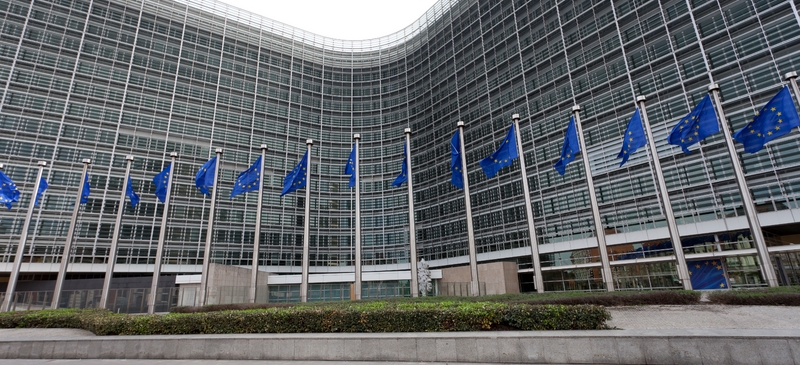
Brussels's Bad Medicine
Europe's prosperity depends on its developing and sustaining high-tech businesses. Twenty years ago, Europe was the center of the pharmaceutical industry, which invested roughly 30% more in R&D here than in the U.S. Today that ratio is more than reversed, with roughly 50% more invested in the U.S. than in Europe. If the gradual erosion of Europe's position in pharmaceuticals persists, it will be poorly placed to profit from new industries such as genomics, nanotechnologies, cognitive sciences and neurosciences.
Yet Brussels may be in the process of aggravating this situation. Next month, the European Commission will present the results of its investigation of alleged anticompetitive practices in the pharmaceutical sector. The EU needs to broaden the terms of this inquiry to include an analysis of how national regulatory frameworks distort the pharmaceutical market. If it fails to do this and fines pharma firms for engaging in restrictive business practices or for abusing their dominant market positions, it will further undermine the EU as a location for pharmaceutical research.
In announcing the investigation in January, the Commission cited an alleged slowdown in the number of innovative medicines being developed in Europe, even though there is little evidence of this. It also referred to delays in the introduction of generic alternatives to patented drugs. In particular, pharmaceutical firms are suspected of using patent disputes, the extension of patent protection for existing medicines, and vexatious litigation to block generic (and hence cheaper) drugs from entering European markets.
Brussels makes three problematic assertions in its analysis: that there is a single EU market in pharmaceuticals; and that the industry is responsible both for partitioning it by refusing to supply wholesalers in member states where prices are very low, and for distorting it by colluding with other firms to slow the introduction of new medicines. But there is no such integrated EU market, and little competition for the firms to undermine.
EU member states control prices of prescription medicines through extensive national regulation of either prices or profits. In most of them, national regulatory bodies also effectively determine the demand for a particular drug because health-care budgets are capped. As a result, pharmaceutical firms have minimal pricing power and very little scope to influence demand for their products. If pharma firms are guilty of anticompetitive behavior, it should be seen in the context of the regulatory environment in which they operate. If the Commission acts against these companies without addressing the issue of artificially low prices, there is a risk pharma firms will relocate out of the EU.
Of course, the Commission can do little about the distortions created by national pricing regimes because it has no responsibility in the area of health care. But it must recognize that these regimes distort the market, and that the prices paid for medicines influence firms' readiness to innovate and supply particular markets. The prices of patented medicines in the EU are on average just over half of those in the U.S., with Spanish and Greek prices less than 40% of U.S. levels. Pharmaceutical companies will only introduce new medicines if they are confident of making an adequate return on their investment.
Similarly, any analysis of the reasons why sales of generic medicines are lower in the EU than in the U.S. needs to consider the ways in which national pricing structures slow the introduction of generic alternatives to patented medicines. First, because generics are a lowmargin business, makers of generic drugs find many national markets too small to be worthwhile entering. Second, generics have little penetration in countries where the prices for innovative drugs are too low for the generic drug to undercut.
The Commission has taken a hard line against pharma firms seeking to limit so-called "parallel trade," in which wholesalers buy a product in a European country where prices are low and sell them in a high-price country, earning a profit. In many markets, such as those for cars or other consumer goods, parallel trading has undoubtedly contributed to price convergence across the EU, usually by forcing companies to lower prices. This has helped to deepen the single market. However, these are markets where companies, not public bodies, set the prices.
Spanish and Greek wholesalers are very active in parallel trade of pharmaceuticals. But if prices were bid down to the levels prevailing in Spain and Greece, there would be fewer new drugs developed -- and hence less competition for existing treatments. Low-price countries such as Greece Italy and Spain are essentially free riders whose citizens gain at the expense of patients in high-price jurisdictions such as Germany and the Netherlands.
The Commission's support for parallel trade in the pharma sector betrays an incomplete understanding of the nature of competition in that industry. It also confuses low prices with a competitive market. In the pharma sector, low prices tend to reflect the impact of regulatory interference, not competition. The price caps actually reduce competition as firms have weaker incentives to develop new drugs to challenge incumbent treatments.
Brussels should be circumspect about any action it takes against pharmaceutical firms for allegedly anticompetitive practices. Maintaining the prevailing pricing regimes and national regulatory structures while acting against industry would only accelerate the decline of R&D spending in the EU.
